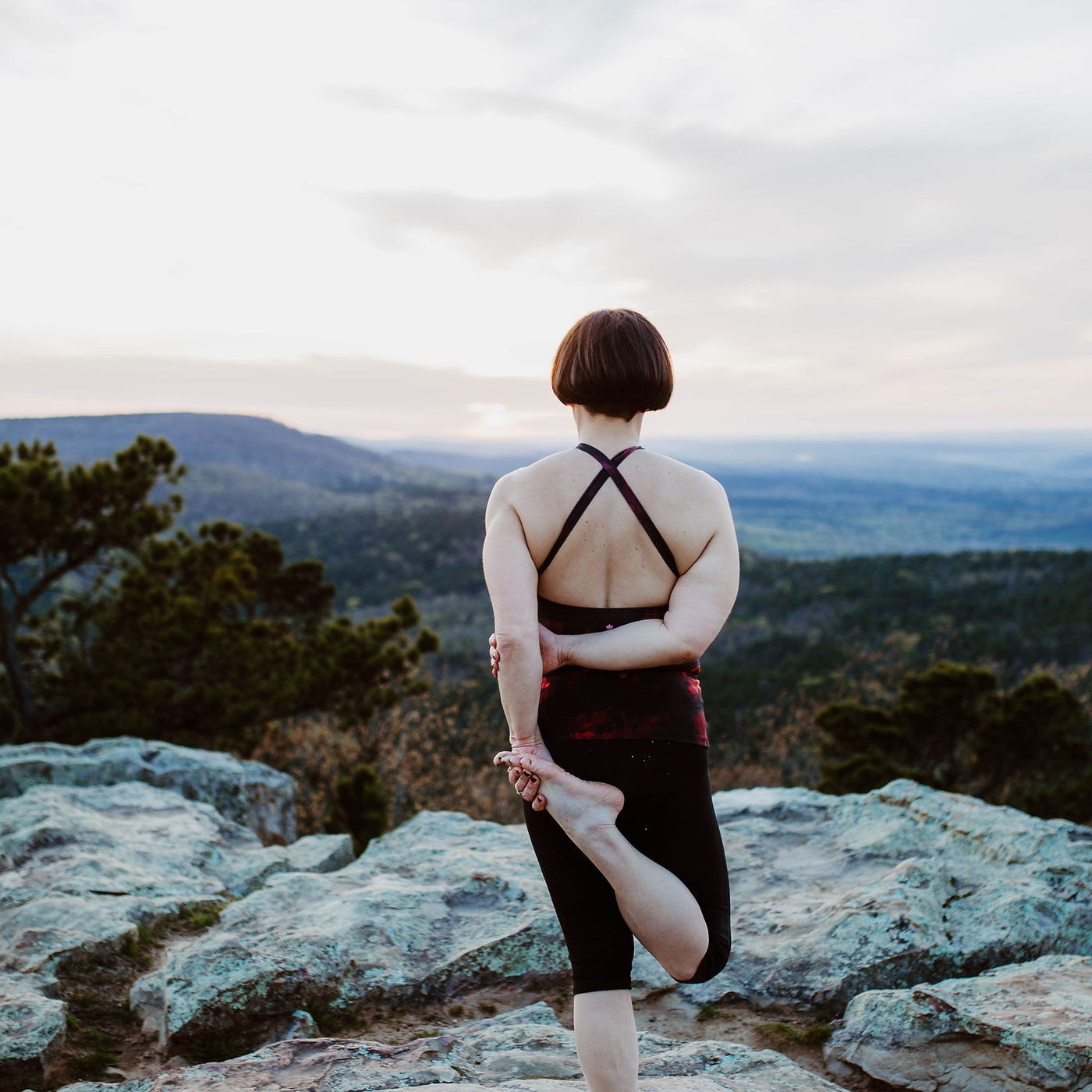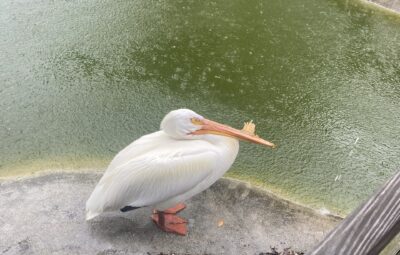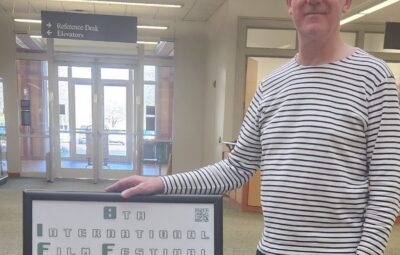Happiness.
The most elusive and misunderstood feeling on planet earth. The Beatles describe happiness as a warm gun. Others describe it as a sunny day with car windows rolled down or a goal achieved or feeding a snake or playing billiards in a musty bar at the edge of town.
As with all feelings, the abstract nature of happiness is fleeting. Songs end, the sun goes down, the next achievement is sought out, animals are fed and clubs close.
Happiness, according to Dr. Erin Clair, director of general education, director of operations for the college of arts and humanities and associate professor of English, is a deep subject.
Clair’s story begins in a far suburb of Cleveland, Ohio, south of Lake Erie. She would be born in Painesville and grow an intense love for academia due to living across the street from Lake Erie College, a small liberal arts school.
After graduating high school, she would receive a bachelor’s degree from Case Western Reserve University in Cleveland, her master’s degree at Texas Tech and her Ph.D. from the University of Missouri at Columbia.
It is customary for English professors to select an era of literature and theoretical approach. Clair chose Modernism for her era, with gender and sexuality as her theoretical approach.
She wrote her dissertation for her Ph.D on how modernist authors fetishized women for their thinness and passivity, to correct the struggle that women were facing as they began to gain power. She has studied women’s power in relation to their body size.
“I was obese from the time I was 5 years old. I never knew life another way: it was my normal,” Clair said. As she wrote her dissertation, she began to wonder if she would be treated differently if she looked different.
Clair had severe depression when she was a girl.
“I didn’t really understand what it meant to be happy when I was younger… I wanted to learn about what I find difficult to do, so I can solve it,” she said.
“When I was in my mid-thirties, my mom had a heart attack. That was a wake-up call about my genetics. This wake-up call, coupled with my research into women’s bodies in culture, as well as a desire to understand the opposite of depression, led me to transform myself,” she said.
Clair lost 150 pounds with a combination of running, roller derby and yoga.
“Losing (losing) weight was not, of course, the key to happiness. It is much more complex than that. So, my intense research into the subject began,” Clair said.
Her research began with looking at all the philosophies and angles of happiness she could find. This included subjects such as religion, love, exercise and volunteering. From here, she slowly began to compose a big picture of happiness, drawn in the different ways people approach the elusive subject.
“There’s a yearly happiness rating and the United States usually is pretty far down on the list, because happiness in our culture is always elusive. It is always after the next goal, we can never get it in the United States,” she said.
Clair has rejected the traditional culture of being happy only when one achieves great things and chooses to be happy as much as she can.
“It doesn’t mean everything is like ‘woohoo!’ Things are crappy, and you got to do things you don’t like, but life isn’t a slog like everyone thinks,” Clair said.
In 2018, Clair created the Joy project for ATU faculty to enjoy their work a little more. It eventually evolved into a health and wellness series throughout the university. This includes activities such as meditation and yoga, but sometimes features unique events, according to Clair.
“[The faculty] is going to look at the pigs that the agriculture department has. I’ve never seen those pigs. I demand piglets, so somebody better give birth.”
Clair structures her life, hobbies, and activities around finding happiness. She currently teaches yoga and meditation, participates in roller derby and spends time with her two children, 14-year-old Olive and 13-year-old Moss, and her husband, Dr. David Eshelman, the head of Tech’s communication and journalism department.
It is through all this that she finds her empowerment and happiness. She stresses the importance of being able to own one’s happiness. This is something that requires intense meditation and self-understanding.
According to Clair, everyone has a way in which they view the world. Religion helps a lot in building a framework to get through the day, and how to get through terrible events.
Clair needed more than that religious framework, which began her studies to become a yoga teacher.
“There’s deaths in the family or horrible things or wars. You know to be okay and not attached to misery. Yoga is not just a movement of the body. It’s not just breathing techniques. It’s through what’s called the 8 limbs of yoga the way to understand how to live,” she said.
There are multiple types of yoga, and Clair teaches hot power yoga. This is the opposite of calm, restorative yoga. Clair sets the room to 100 degrees and teaches pupils how to build strength in every place of their body.
“This transforms you mentally. You can’t think of ‘oh, I gotta do some laundry.’ No! You’re like ‘how am I going to survive to this next breath,’” she said. “Add the heat, and their dripping [sweat] off everything. At the end they all walk out and look like they’re drunk. I call it yoga drunk. They are just so light and happy,”
According to Clair, this is due to the endorphins released with the exercises she teaches.
“They hate me for 40 minutes and they’re like ‘I’ve never been so hot.’ Then they walk out like newborn babies. That is why I do it.”
Her yoga teaching juxtaposes perfectly with her other love, the contact sport known as roller derby.
“People always think yogis are very Zen and always calm. But no, everybody is violent and has those tendencies and wants to hit and get out something physical. Roller derby does that,” she said.
Clair has been skating for eight years. Prior to the pandemic, she would go out twice a week to participate with her teammates in practices and scrimmages.
Her team changes often depending on the year.
“We are a ragtag group of whoever shows up,” Clair said with a smile. “A lot of women will have roller derby during a transitional time in their life. Like they get divorced, they’ll be there for a season, and they will go.”
Roller derby, according to Clair, is all about women empowerment — a facet of the sport she adores.
“When these women fall down, they’re scared. What are you scared of? Are you broken? No? Then get back up,” she said. “All that is fear, we have to get rid of that fear. Women are scared of being hurt. They realize they have it in their control to be okay. We teach them how to fall right away. It isn’t about falling. You’re gonna fall. It’s how to get back up and fight for yourself. What happens is whatever we do out there on the track transforms us the rest of our lives.”
The biggest love of all, and the ultimate key to happiness according to Clair, is being with her family. Her eyes dance brightly around the room as she talks about the things she does with her husband and kids.
“I adore when we go up to Mount Nebo and rent a cabin because we don’t let them bring their electronic devices. They’re the most human and we laugh so much. Me and my husband, we’re very quirky and they’re just products of us. So, their quirkiness, when it comes out, is just hilarious,” Clair said.
Happiness is less of a warm gun and more of a loaded question. It takes many forms, and those forms are ever-changing even within the scope of the individual. Happiness can be a lot of things. It can be finding love in your undergraduate college or playing a game of Apples to Apples.
For Clair, happiness is life.







